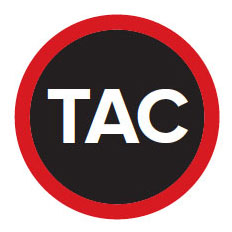Which Tyres should I buy?
Page Contents
Budget Tyres or Premium Tyres? There are so many choices when it comes to selecting the right tyres for your car. With an ever increasing range of budget tyres at more affordable prices it is easy to be tempted to go for the cheapest. In this article we will look at the pro’s and cons of using budget tyres.
Budget Tyres
The biggest advantage of budget tyres is undoubtedly the price. However when you consider that these 4 pieces are your only point of contact with the road surface, in all conditions, there are other things you need to consider.
Budget tyres are subject to testing and checks, so the majority that are manufactured will be of a certain quality standard and safe. However the quality of materials used in the manufacture of budget tyres is of inferior quality to premium brands.
Budget Tyre Performance
Cheaper tyres can offer adequate performance on the road but when you really need to rely on your tyres such as hard cornering and aquaplaning resistance. Budget tyres will be out performed by premium tyres in these areas, sometimes the difference can be quite alarming.
Budget Tyre Braking Distance
When it comes to braking distances, there is often a large gap between budget and premium tyres. A recent test undertaken by Continental tyres, for example, showed that wet braking distance was over five metres longer when the vehicle was using budget tyres compared to premium tyres.
Budget Tyre Wear
As Budget Tyres are made with inferior materials they will not achieve the same mileage as a premium tyres. This has been proven in numerous tests by tyre manufacturers and independent organizations. So arguably the biggest factor in making your choose budgets in the first place really is false economy.
Premium Tyres
Premium tyres are always fitted to vehicles from new by vehicle manufacturers as they appreciate the research and development and materials used in the manufacture process. But why do they cost more?
The materials used in the manufacture process are far superior to those used in the process of manufacturing budget tyres.
Huge sums of money is spent by premium manufacturers in research and development, formulating and testing new compounds (the rubber), tyre tread patterns and structures. Professional test drivers, put tyre prototypes through their paces in both real and simulated conditions, and if they don’t come up to scratch, the process starts over again.
Independent Industry experts routinely test tyres and their view is:
Premium Tyres are Noticeably Safer
A leading insurance company asked a variety of independent tyre industry experts to make the case for purchasing budget tyres. Not one would. Experts believe that premium tyres are critical to ensure better road safety.
Low-grade rubber compositions typically used for budget tyres are not as effective at gripping the road in wet conditions, and this affects stopping distances. An ‘A rating’ for wet braking distance on the EU Tyre Label means the tyre is highly effective at gripping wet roads. The poorer ‘F rating‘ – typically found on budget tyres – indicates they could add as much as 18 metres when stopping in the wet at a speed of 50mph – when compared to an A-rated tyre. We all know from experience that a lot can happen in 18 metres… and it can be a matter of life and death. Premium tyres typically receive the wet weather high A ratings, while budget tyres typically receive the lowly F rating.
Premium Tyres Wear More Slowly
It’s true, a set of premium tyres will initially cost you more. Whilst that is a larger initial outlay, it’s important to also consider the rate of tyre wear, which thanks to the design and use of higher quality materials is typically significantly slower for premium tyres. Slower tyre wear means you won’t have to change your tyres so often resulting in a saving.
Premium Tyres are More Fuel Efficient
Your tyre‘s quality and construction also affect fuel efficiency and the amount of harmful emissions your vehicle emits. The EU Tyre Label helps here, too. Over the course of a year, premium tyres with an ‘A rating’ will save a massive 80 litres of fuel – or around £110 per year at current forecourt prices.
Add this cost that for buying budget tyres, and you can start to see how budgets may not be the bargain choice they’re made out to be. Premium tyres can work out to be the less expensive option. With the added benefit of reduced greenhouse emissions and reducing your personal carbon footprint
Still Struggling to Choose
The EU Tyre labelling system can help you with your decision. The EU Tyre Label grades tyres on their performance in terms of wet braking, noise emission and fuel efficiency. You should use the results as a guide when choosing your tyres as you can feel secure that the tyres you choose will meet your demands. Take a look at Goodyears tyre labelling guide here.
What Car have also done a great little video on this subject. Watch it on you Tube by clicking here
Auto Care Group
The Auto Care Group have sites in Darlington and Stockton-On-Tees. We stock a wide range of premium tyres for all makes and models. Which can be priced and ordered here
We also offer Tyres, Servicing on all makes and models without invalidating your manufacturers warranty, Brakes, Clutches, Air Conditioning, Wheel Aligment, MOT Testing and all mechanical repairs.






